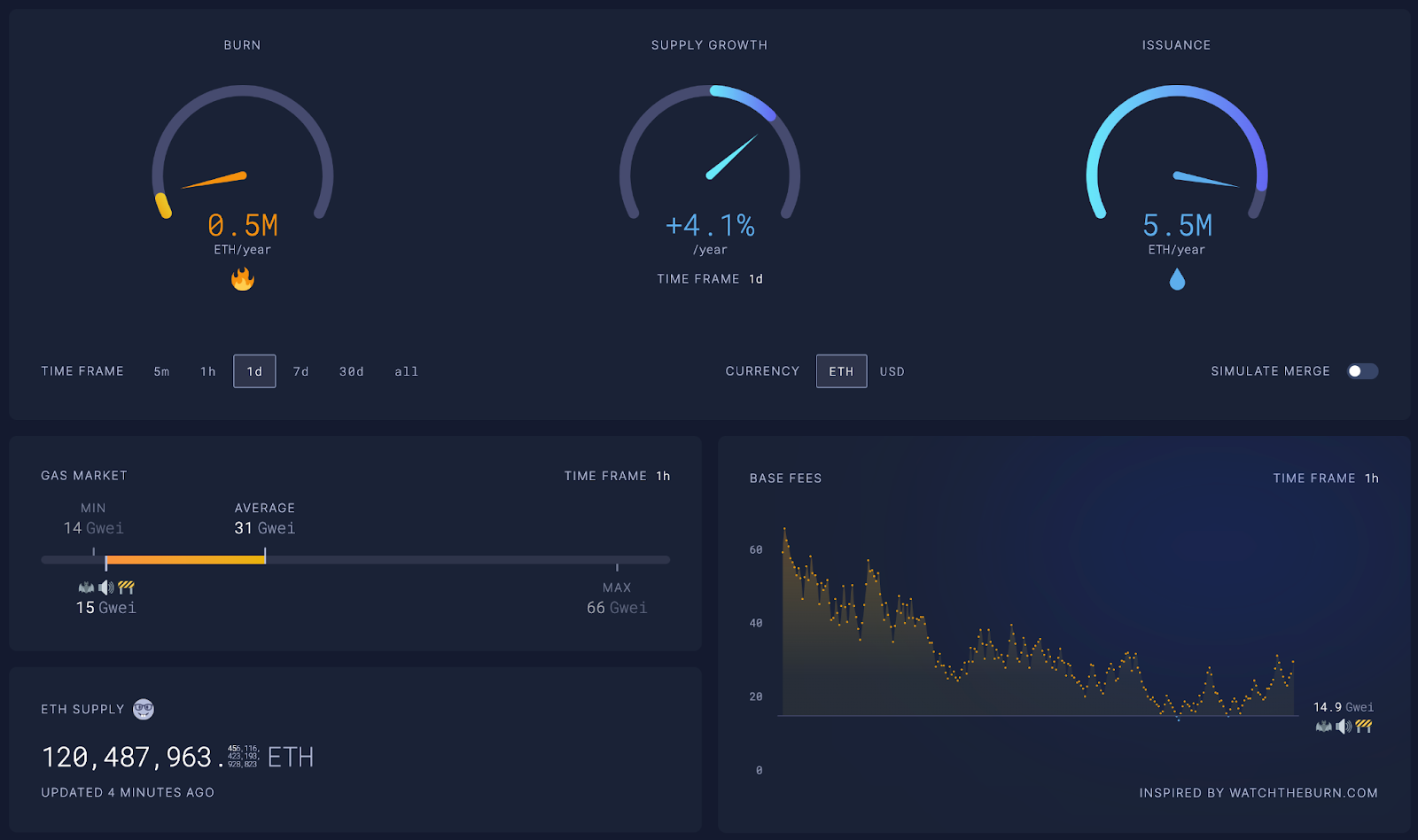Part mascot, part infographic, the Ethereum Merge panda bear is set to become the quasi-official Merge NFT, with its seven-day sale on NFT marketplace, Zora.
Unrelated, but of longer term significance, is the prognostications by supporters of “ultra sound money” — the memey notion that the Merge will make ether a deflationary asset.
The Ultra Sound Money website allows prospective investors to simulate a variety of parameters that will determine whether staking issuance exceeds demand.
Panda fusion
Ethereum’s panda meme, inspired by the manga Dragon Ball Z “fusion dance” and made famous by influencers such as Anthony Sassano, shows two bears — one black and one white, symbolizing the consensus and execution layers of proof-of-stake Ethereum — merging into a panda.
1/ Everyone knows pandas = Merge 🐼
— JPG (pronounced jpeg) (@______jpg______) September 11, 2022
we're _thrilled_ that the OG meme will be available to mint in New Home of the Heart!! 🏠❤️ proceeds go to:@icebearhww: meme creator@CW_Cnatch: original illustrator @protocolguild: Eth Merge devshttps://t.co/S65d7XFNg4
↓ backstory ↓
Half the funds from the 0.05 ETH ($85.60) mint will be used to fund Ethereum core development, with the other 50% shared between the meme’s creator, non-profit animal welfare organizations, Gitcoin Grants and Shonen Jump, a weekly shōnen manga anthology published in Japan, according to the sale description.
The original illustration is credited to Thai artist “CW.Cnatch,” who will receive 25% of the NFT proceeds.
Ethereum core development funds will be distributed through the Protocol Guild, a collective of protocol contributors, via an on-chain split administered by Stateful Works.

Even Google is in on the panda act; search queries for “Ethereum Merge” now display an estimated time and an image of the black and white bears — with ether symbols as belly-buttons — getting closer, in sync with the countdown.
Ultra Sound Money bat signal
Bitcoin’s narrative as digital gold is based in large part on its disinflationary design (not to be confused with deflationary).
The assets’ so-called halvenings — memes in themselves — hard-coded into the protocol, reducing the BTC reward to proof-of-work miners by half every four years. The next such reduction is set for sometime around May 2024, and the process will, in theory, continue into the next century, as the asset approaches its finite supply of 21 million bitcoins.
Ethereum has never had a cap on the supply of ether, nor does the soon-to-be-retired proof-of-work chain undergo halvings. But, to Ethereans excited by the Merge, in about 60 hours it will undergo something similar, dubbed the “Triple Halvening.”

As miners cease to be relevant at the moment of the Merge, the ether issuance rate is expected to be reduced by roughly 90%, equivalent to three simultaneous ‘halvenings.’
Miners are typically forced to sell their rewards to pay for expenses like equipment and electricity. By contrast, ether issued to validators through staking rewards can potentially be reinvested into additional validators, and sold more strategically — or so goes the bull case.
Demand drivers include staking demand, ether burned through usage and the ordinary need by dapps for blockspace.
Meme meets reality?
That global decline in ether issuance — thanks to the end of proof-of-work mining — coupled with these various sources of demand is what underpins the Ultra Sound Money meme.
No one knows whether demand will in fact outstrip supply, but we can model the variables and make an educated guess.
For instance, at the current stake rate, Ethereum becomes deflationary at a base fee rate of 15 gwei, according to Ultrasound.Money.

That’s greater than the historical gas fees paid about half the time over the past seven days.
If demand for ether rises, the asset could become deflationary most, or even all of the time. On the other hand, as more ether is staked to secure the network, issuance could increase, raising the base fee rate required to maintain a deflationary posture.
What is sure, is that over five thousand Twitter users have added the bat signal meme to their profiles, an homage to the concept of Ultra Sound Money. And upwards of 425,000 validators have each staked 32 ETH to get a piece of the action.
As of press time, 118 panda NFTs have also been sold, netting $10,000 in ether.
 blockworks.co
blockworks.co